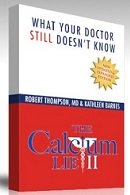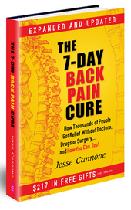|
Nutrition and Alzheimer's Disease
What is the connection between nutrition and Alzheimer's Disease? Interestingly, it turns out that Alzheimer's is closely related to diabetes; so closely, in fact, that it is now often called type 3 diabetes.
The brain depends on glucose as an energy source in order for thinking, memory and other functions to work. All cells in the body require glucose, which they obtain with the help of the hormone insulin. In type 2 diabetes, cells become resistant to insulin and therefore do not receive enough glucose. When brain cells become insulin-resistant - essentially diabetes of the brain - (as happens in Alzheimer's), inadequate glucose leads to damage that results in impaired memory and many aspects of mental function.
Insulin produced by the pancreas helps regulate blood sugar levels in the body. Scientists have discovered that the brain produces its own insulin to take care of the brain's needs. "Not long ago, it was thought that there was no connection between insulin and the brain, that the brain was insulin-insensitive," said William Klein, a professor of neurobiology and physiology at Northwestern University in Illinois. "But we now know that's not the case. What's surprising everyone is that it (insulin) has a specialized function, tied to learning and memory."
In fact, studies have shown that diabetics have a 30 to 65 per cent higher risk of developing Alzheimer's disease. The risk factors that predispose an individual to one are connected to those for the other. So there is a real connection between nutrition and Alzheimer's disease.
Dr. Jack Diamond, scientific director of the Alzheimer Society of Canada explains that the diabetic brain is much like the diabetic body. Either the brain isn't producing enough insulin, which is crucial for memory formation (like Type 1 diabetes) or the brain has become insulin-resistant (like Type 2 diabetes). Brain imaging techniques show a dramatically-decreased uptake of glucose in the brains of Alzheimer's patients.
So the problem is that there is not enough energy getting to the brain cells so they can work properly. Fortunately, it turns out that brain cells that are having problems getting enough glucose can use an alternate fuel for energy. Scientists have discovered that certain fats are metabolized into ketones and these ketones can be used as an alternative source of energy for your brain cells.
Dr. Theodore VanItallie, (an M.D. and professor emeritus at the College of Physicians and Surgeons at Columbia University in New York City) who has been researching ketones for more than 35 years says that "ketones are a high-energy fuel that nourishes the brain." He explained that when you are sufficiently calorie-deprived, the body will produce ketones naturally.
This makes sense because you are then burning a high proportion of body fat. This may also explain why people on a fast often experience greater mental clarity. During the first few weeks of life, ketones provide about 25% of the energy newborn babies need to survive.
Ketones are normally produced in small amounts from fat stored in the liver. However, they are only produced when carbohydrate consumption is very low as when fasting and when blood-glucose levels are also low.
Making this work for the type-3 diabetic while maintaining a semblance of normality in a person's diet can be a challenge. Fortunately, one class of fats - medium chain triglycerides (MCTs) - are converted into ketones by the liver regardless of blood glucose levels or the amount of carbohydrate in the diet. And these ketones can then be used as fuel by the brain even though its use of glucose is impaired.
Various studies have shown beneficial effects of ketones on the brain. These include:
- when the brain uses ketones, it produces 25% more energy than when it uses glucose.
- a ketone-producing diet increases blood flow to the brain by 39%.
- mice on a ketone-producing diet had fewer brain plaques than mice fed a standard diet.
Adding MCT oils can greatly increase the supply of ketones to the brain and improve brain function.
There is an experimental drug called Ketasyn that has coconut oil as a major component and coconut oil is about the richest source of medium-chain triglycerides there is. So why would you want to take a high-priced drug which will probably have dangerous side-effects from other ingredients when you could simply take coconut oil? Virgin coconut oil is more than 60% MCT oil. You can
buy it in bulk
and while you may pay $60 to over $100 for a 4-liter/1-gallon container of a quality product, that will go a long ways and can be used in place of other, less-healthy oils. In terms of average prices for nutritional supplements it is very inexpensive.
References:
Ketone bodies as a therapeutic for Alzheimer's disease. Henderson ST. Neurotherapeutics. 2008 Jul;5(3):470-80.
Ketone bodies, potential therapeutic uses. Veech RL, Chance B, Kashiwaya Y, Lardy HA, Cahill GF Jr. Unit on Metabolic Control, LMMB/NIAAA, Rockville, Maryland, USA. IUBMB Life. 2001 Apr;51(4):241-7.
"Combinations of medium chain triglycerides and therapeutic agents for the treatment and prevention of Alzheimer's disease and other diseases resulting from reduced neuronal metabolism," United States Patent 20080009467, Inventor Samuel T. Henderson, Accera, Inc., Broomfield,Colorado (Ketasyn).
|
Keep up to date with
valuable insights into
pain management via
a healthy lifestyle.
Receive the monthly
Natural Pain Relief
Guide Newsletter.
News articles, health
tips, specials, freebies.
Enter your email and name
in the form to the right.
|
|
|









New! Comments
Have your say about what you just read! Leave me a comment in the box below.